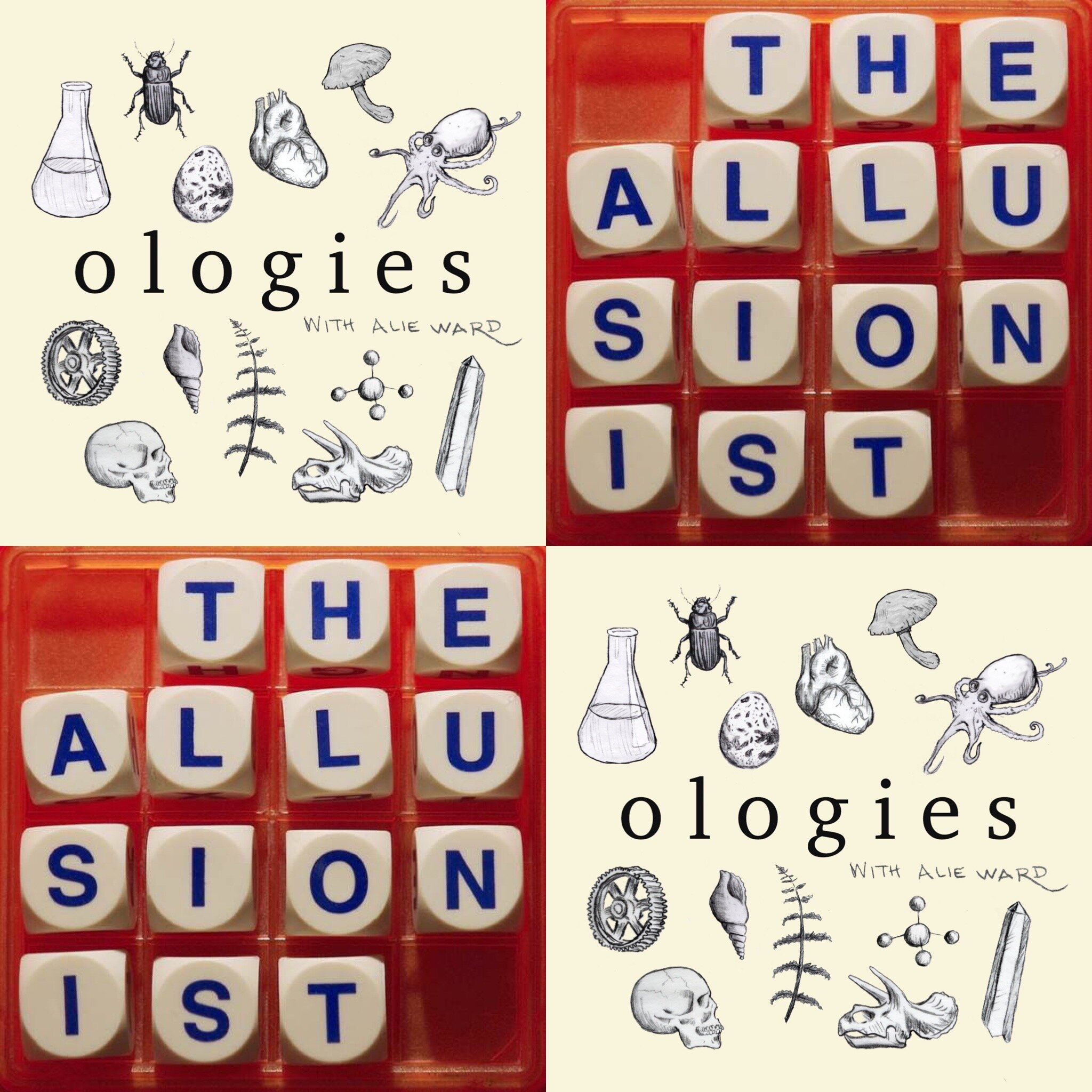DEV SHAH: Spelling is about roots, language. I genuinely loved getting a word I didn't know and having all this information - it was like a detective case: you have the language of origin, the definition, alternate pronunciations, roots; it's like witnesses and having details to a crime scene, forensics. And, you know, it was just me piecing out together, doing what I love, in front of millions of people, shining on a stage, cameras, and still getting a lot from it.
HZ: And you got to do all that detective work in ninety seconds.
DEV SHAH: Exactly.
Allusionist 192 Word Play part 2 transcript
HZ: People assume to my face that a podcast about language won't be fun, and they're like, “Why would you do something that sounds so boring and dry and like a punishment?” What kind of reactions do you get when people learn that you make games about language?
KATHRYN HYMES: It's so interesting - for some people there's a similar reaction, but for a set of people, it's like you have given them the thing that they have most wanted in the world and maybe didn't realise or articulate or hope that such a thing could be made. And it's somewhat shocking that there's enough of those people and that the internet is able to connect it, you know, connect us to them that we end up finding each other.
Allusionist 120 Shine Theory transcript
AMINATOU SOW: Hi. We are Ann Friedman and Aminatou Sow, and we are the authors of the book Big Friendship, as well as the hosts of the podcast Call Your Girlfriend.
HZ: And at some point between 2009, when they met and befriended each other, and 2013, when Ann used it in an article in New York Magazine, Aminatou and Ann coined the term Shine Theory.
ANN FRIEDMAN: I think this is just something that, you know, you probably said to me first, “I don't shine if you don't shine.” And then it became a thing we said frequently to each other and to other friends.
AMINATOU SOW: I will confess that it is the lyric from the Killers album that I just enjoyed a lot.
Read moreAllusionist 118 Survival: Bequest transcript
ELIZABETH KEREKERE: I'm so convinced that transphobia, biphobia, homophobia are such an integral part of colonisation, I reject that as a colonial construct, I reject it as racist.
As they took our land - tried to take all of our land, tried to take all of our language and suppress our culture, they also took our expressions of sexuality and gender. And that is important to us in a core part of our culture, especially because the way that the institutional racism, the intergenerational trauma that is the legacy of colonisation has impacted on us and the levels of discrimination against people with diverse genders, sexualities and sex characteristics, that we see that all of this, all of this was a massive attempt to cover up what was already there and pretend it never happened.
Allusionist 113. Zaltzology transcript
ALIE WARD: Carrie Studard wants to know: “Are there any synonyms for the most hated word, ‘moist’?”
HZ: Moist. Do you hate the word ‘moist’?
ALIE WARD: At this point, it's an underdog. You know what I mean? Like, can moist live? Can it just do its business? I don't hate it.
HZ: It's fine.
ALIE WARD: I don't hate it. I tend to think of dew or grass more than I think of...
HZ: Well, that's a lovely form of moisture. I suppose the people who hate it are maybe thinking of bodily crevices. And that's their prejudice showing.
ALIE WARD: Yes, it is.
HZ: Yeah. Because other words like ‘damp’ - I mean, if you're moist from the rain, like a raincoat. Damp. Is that better? Is that worse? A bodily crevice could also be damp.
ALIE WARD: Sure. I feel like moist has a certain heat to it that damp lacks.
HZ: A steaminess rather than chilliness. It's good that we're figuring these things out.
Read more




